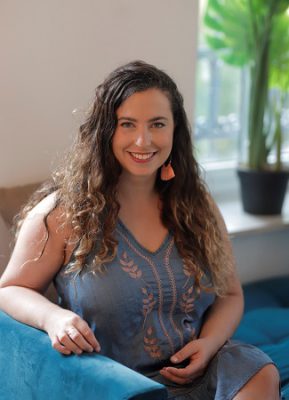
Since she was 12 years old, Nitzan Bernstein had lived with chronic pain. For five days every month, she could not get out of bed.
Living in a small town in the north of Israel, Bernstein consulted many doctors, but they waved away her complaints as discomfort from her monthly period, assuming that, as a teenager, she was just exaggerating her level of pain. Nevertheless, the pain got worse.
It wasn’t until 14 years later that she was diagnosed with endometriosis, a chronic condition where the inner layer of uterine cells typically grows on other pelvic organs, including the fallopian tubes and ovaries, although these cells can appear anywhere in the body. They form lesions, which can cause terrible pain and, in one woman out of three, result in infertility.
Today, Bernstein, now 31 years old and a clinical social worker, volunteers as a patient advocate with the Hadassah Medical Center’s new Endometriosis Clinic, headed by the obstetrician and gynecologist Dr. Uri Dior.
“Women with endometriosis suffer increased pain when they have intercourse or use the bathroom – or for no reason at all,” explains Dr. Dior. “Endometriosis can ruin decades of a woman’s life.”
The causes of the condition are still unknown. There are families with multiple cases of the disease, but no genetic mutation has yet been detected. Treatment focuses on helping patients cope with the condition rather than curing it.
Often, hormone-based medications are used to treat endometriosis. Sometimes, for severe cases, surgery is necessary. The surgical procedure for severe endometriosis is among the most complex in gynecology. In 20 to 30 percent of these surgical patients, the condition returns after surgery.
Because of the complexity of treatment, Dr. Dior explains, a specialized clinic is required. Dr. Dior recommends a multidisciplinary approach, involving doctors, physical therapists, natural therapists, dieticians, pain specialists, and, in some cases, psychologists.
“We have many patients whose lives are back on track and who are able to become pregnant and give birth,” relates Dr. Dior.
“Dr. Uri is one of the most amazing doctors,” comments Bernstein. “At long last, we have a place to go, and I hope the clinic expands to meet the needs of the tens of thousands of Israeli women with this condition.”
